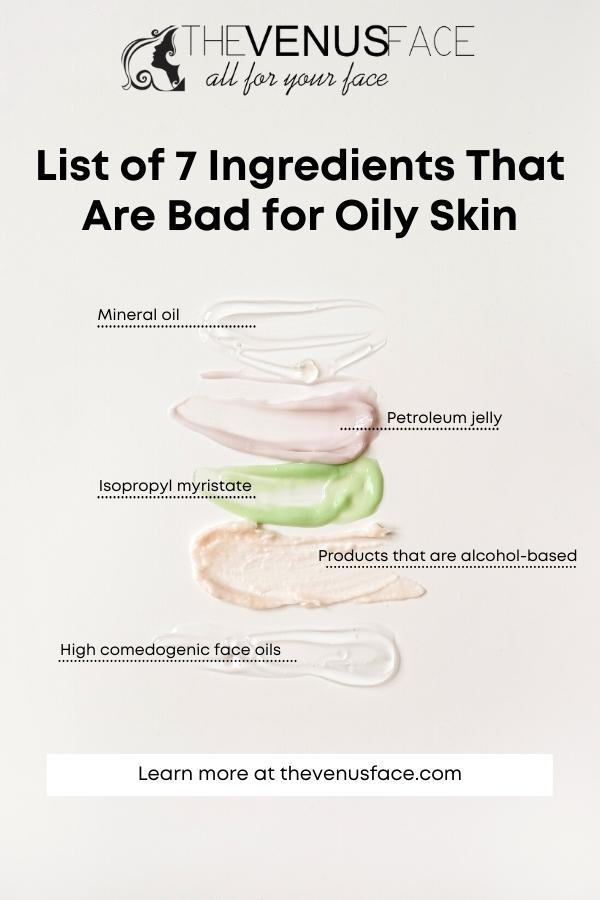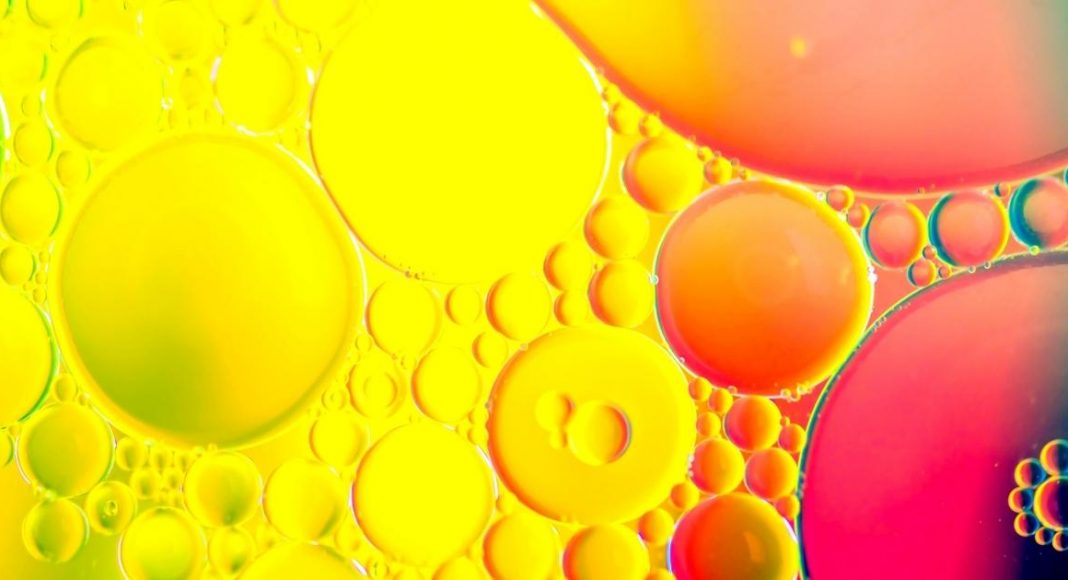What ingredients to avoid for oily skin? Read this list.
Oily skin is the result of overactive sebaceous glands, which produce an excess of sebum. This can lead to clogged pores, acne breakouts, and a shiny appearance. Oily skin is most common in the teenage years, but it can also be a lifelong condition. There are several factors that can contribute to oily skin, including hormones, diet, and certain medications. While there is no official cure for oily skin, there are many ways to manage it. Keeping the face clean, using oil-free cosmetics, and exfoliating regularly can help to reduce the appearance of oily skin. Besides that, knowing what ingredients to avoid is also key in managing oily skin.

7 types of ingredients that are bad for oily skin
When choosing skin care products or cosmetics, you may want to avoid those that contain these ingredients:
1. Petroleum jelly
People with oily skin often struggle to find the right products for their skin type. This is because many skincare products are designed for other types of skin, and may actually make oily skin worse by clogging pores or promoting excess sebum production. For this reason, anyone with oily skin should avoid products containing petroleum jelly, which acts as a barrier on the skin and prevents excess moisture from escaping. Instead, they should look for skincare products that contain natural oils like jojoba or argan oil, which can help to balance out oil production without affecting the overall health of the skin.
2. Mineral oil
Mineral oil is a non-volatile, insoluble oil composed of alkanes and cyclic paraffin. It is used as a lubricant, moisturizer, and cosmetics. It can clog pores and trap dirt and sebum, which can lead to blackheads, whiteheads, and acne. It can also make the skin appear greasy and shiny. People with oily skin are more likely to develop these problems if they use products containing mineral oil. There are many other types of oils that can be used instead of mineral oil, such as jojoba oil, grapeseed oil, or argan oil. These oils are non-comedogenic, meaning they will not clog pores. Jojoba oil is particularly beneficial for people with oily skin because it closely resembles the sebum produced by the skin. Using products containing these oils can help to keep the skin clear and healthy.
3. High comedogenic face oils
One key factor to look for when choosing an oil is whether it is comedogenic or non-comedogenic. Comedogenic oils are known to clog up the pores and exacerbate issues like acne; non-comedogenic oils, on the other hand, are less likely to contribute to blemishes or other unwanted skin conditions. Additionally, people with oily skin should also be sure to choose face oils that are lightweight and oil-soluble – this will help them absorb more easily into the skin without leaving behind a greasy residue. Overall, if you have oily skin and you want to protect it from further damage, it is important to avoid comedogenic face oils and opt for non-comedogenic alternatives instead.
List of some comedogenic oils to avoid:
- Avocado Oil
- Camelina Oil
- Carrot Seed Oil
- Chia Seed Oil
- Cocoa Butter
- Coconut Butter
- Coconut Oil
- Cottonseed Oil
4. Products that are alcohol-based
People with oily skin are often told to steer clear of alcohol-based products, as these substances have a tendency to dry out the skin and can lead to excessive oil production. In addition, alcohol-based products can make blemishes like blackheads, whiteheads, and breakouts worse by stripping away moisture and sebum from the skin. Furthermore, using such products can result in irritation, redness, and peeling. For these reasons, individuals with oily skin should avoid using products that contain alcohol and instead look for gentler alternatives such as water-based moisturizers or micellar cleansing waters.
5. Oleic acid
For people with oily skin, using skincare products packed with oleic acid is not a good idea. Because oily skin tends to produce more sebum than normal or dry skin, it is already prone to clogged pores and acne breakouts. Adding additional oils to the skin through oleic acid can only exacerbate these issues, leading to increased oil production and an overall breakdown in the skin’s protective barrier. Besides that, this acid has a comedogenic rating of 2, which is not ideal for greasy faces. Instead, those with oily skin should stick to water-based or alcohol-based cleansers and moisturizers to help regulate sebum production without overloading their skin.
6. Isopropyl myristate
Isopropyl myristate is a synthetic oil commonly used in skincare products because it effectively dissolves other ingredients and helps to spread them evenly over the skin. However, it can also cause breakouts, particularly for people with oily skin. That’s because Isopropyl myristate has a comedogenic rating of 3, which means it clogs pores and can lead to blackheads and whiteheads. If you have oily skin, you should avoid skincare products that contain Isopropyl myristate. Instead, look for products that are non-comedogenic or oil-free. These products will help to keep your skin clear and healthy.
7. Sodium lauryl sulfate (SLS)
Sodium lauryl sulfate is a common ingredient in skincare and cleaning products. It is an effective surfactant, which means it helps to remove dirt, oil, and other debris from the skin. However, it can also strip away the skin’s natural oils, leading to dryness and irritation. Additionally, it can lead to increased oil production in an effort to compensate for what has been lost, leaving you with even greasy and shiny skin. Moreover, SLS has a comedogenic rating of 3-5, which means it can clog pores easily and lead to breakouts.
If you have oily skin and are looking for effective skincare products that won’t exacerbate the problem, look for those that don’t contain SLS or other harsh cleansers. By finding a suitable balance between cleansing and maintaining your natural oils, you can keep your skin looking and feeling its best.
Final thought
Oily skin can be a challenge to deal with, but by avoiding certain ingredients and products, you can help to keep your skin looking and feeling its best. We’ve outlined some of the most important ingredients and products to avoid if you have oily skin, so make sure to read this information carefully and use it as a guide when shopping for skincare products. Now you know what ingredients to avoid for oily skin, remember, finding the right balance between cleansing and moisturizing is key, so don’t be afraid to experiment until you find what works best for you.


